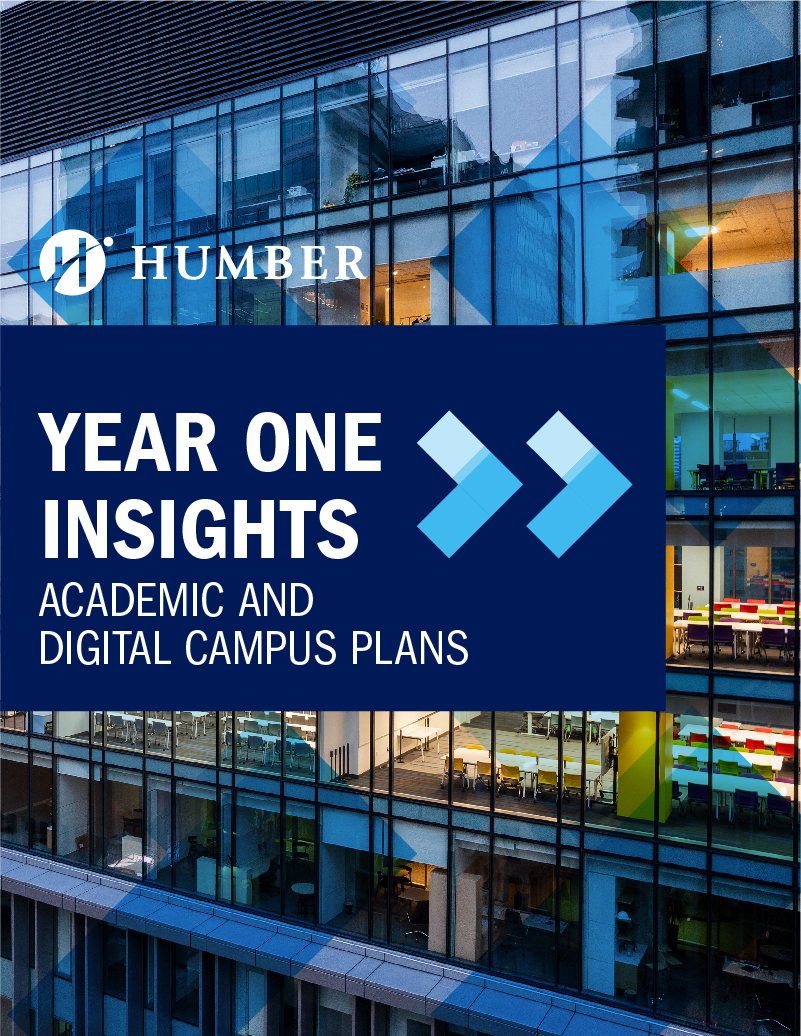Updates on expanding Humber’s credential mix and improving recognition of prior learning processes.
It has been a year since we officially embarked on the 2023-2026 Academic Plan. Even with all the recent changes that impact us, the plan's goals and priorities continue to be highly relevant and are key to continuing to drive Humber forward.
In the first year of the Academic Plan, Humber has made progress towards expanding its credential mix and strengthening foundational processes to support recognition of prior learning (RPL).
As our Academic Plan outlines, we are committed to supporting transitions between high school, post-secondary education and employment by increasing the range of credentials, pathway options and RPL processes.
Applied Master's Degrees
Humber has taken steps forward to build our capacity to offer applied master’s programs. Supported by the recent provincial government announcement outlining their intent to authorize colleges to offer applied master’s degrees, this initiative aligns graduate education with industry demand. Focusing on fields crucial for economic development, Humber has submitted our first applied master’s proposal in Advanced Manufacturing to the Ministry of Colleges and Universities. As we await guidance regarding next steps, we are updating our policies and academic regulations to address this new credential level.
Additionally, in the plan's first year, we established a framework and decision-making process to prioritize the development of applied master’s programs, along with a pipeline strategy for applied masters’ level credentials.
Recognition of Prior Learning
Recognizing prior learning increases student access to post-secondary education by facilitating mobility within Humber and between other recognized institutions through transfer credit, pathways, or prior learning assessment recognition (PLAR). At Humber, 52.5 per cent of entering students have previous post-secondary experience, and we anticipate this number will continue to grow.
We all know that learning is not confined to the classroom; it can happen in various contexts such as work, home, or through other lived experiences. PLAR processes provide a mechanism to document, demonstrate, and recognize this diverse range of learning experiences.
In the first year of the RPL Academic Plan initiative, we focused on creating consistent RPL quality assurance structures and processes across Humber. This included the creation of a formalized pathway programs development process and a student-centered PLAR process outlining key milestones and actions. In the second year, we are concentrating on improvements to program quality components that integrate with these key processes to ensure that Humber continues to meet all required quality assurance commitments. By the end of the Academic Plan, our goal is to establish Humber as a leader in RPL, ensuring all learners are recognized at every stage of their academic journey for the skills, knowledge and abilities they have acquired.
Thank you to the many teams across the organization who contribute to this important work. Through these initiatives, we continue our journey towards developing a coordinated system of high-quality programs and learning pathways that maximize choice, flexibility and mobility for an even greater number of diverse learners.
I look forward to continuing to update you on our progress as we move into year two of the Academic Plan.
Gina Antonacci
Senior Vice-President, Academic

